Myanmar parliament speaker U Shwe Mann concedes loss in election
Updated: 2015-11-09 14:54
(Xinhua)
|
||||||||
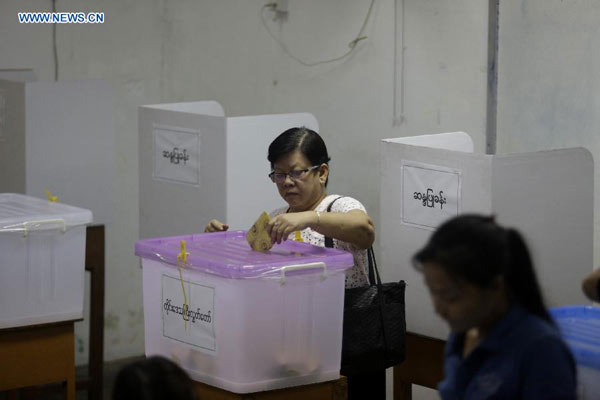 |
|
A woman casts her ballot during the general election in Yangon, Myanmar, on Nov 8, 2015. Myanmar's multi-party general election began across the country Sunday morning at 6 am local time with 33.5 million eligible voters starting to go to polls and cast votes at respective polling stations. [Photo/Xinhua] |
YANGON - Current speaker of Myanmar's Union Parliament and House of Representative U Shwe Mann, who competed in Sunday's general election representing the ruling Union Solidarity and Development Party (USDP), conceded personally having lost in the polling in his facebook Monday.
U Shwe Mann, who claimed to have been defeated by opposition National League for Democracy (NLD)'s U Than Nyunt in running a seat of the House of Representatives in the election in Bago region's Phyu constituency, has extended congratulation to his winning rival, he added.
NLD Chairperson Aung San Suu Kyi won in the general election, securing a seat with the House of Representative in the next parliament, according to the NLD sources.
Competing in Yangon's Kawhmu constituency, Suu Kyi, who is also a current parliamentarian, won against her rival U Kyaw Zin Hein from the USDP.
Chairman of the ethnic Arakan National Party (ANP) Dr. Aye Maung also admitted personally in an interview with Xinhua that he lost in the election competed in Rakhine's Manaung constituency for an ethnic representative to the Rakhine State Parliament but saying that his party's status is still good.
The election result is expected to be officially released by the Union Election Commission later on Monday.
A number of leaders of Myanmar's ruling party and current ministers were initially reported lost by local media in Sunday's general election, while NLD is leading as winner of the election .
USDP fed 1,122 candidates, while NLD fielded 1,123 in running the election.
A total of 6,038 candidates involving 91 political parties and 310 independent runners competed for more than 1,000 seats at three levels of the parliament in the election.
The Union Election Commission designated 1,150 constituencies for the vote at three levels of the parliament across the country.
Of them, 323 constituencies are for contesting seats of House of Representatives, 168 for House of Nationalities, 630 for the Region or State Parliament and 29 for ethnic representatives.
- Fate of soldiers' remains in Myanmar under discussion
- Myanmar's general election begins across country
- Myanmar polls hold promise for SE Asia
- More than 10,000 observers to monitor Myanmar's election
- General election to reflect people's genuine desire: Myanmar president
- Myanmar on road to growth
- Myanmar opposition candidate attacked with machetes
- Myanmar gov't signs ceasefire accord with 8 armed groups
- Myanmar gov't promises to hold free, fair election
- Myanmar's election campaign picks up momentum
- Myanmar president urges for ceasefire accord
- Chinese bank opens branch in Myanmar
- Myanmar opposition leader terms election as crucial turning point of country
- China and Myanmar focus on border safety
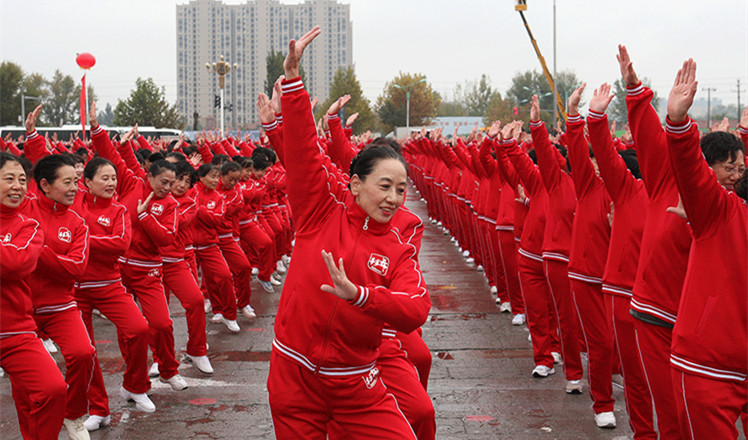
 Stepping into the record books
Stepping into the record books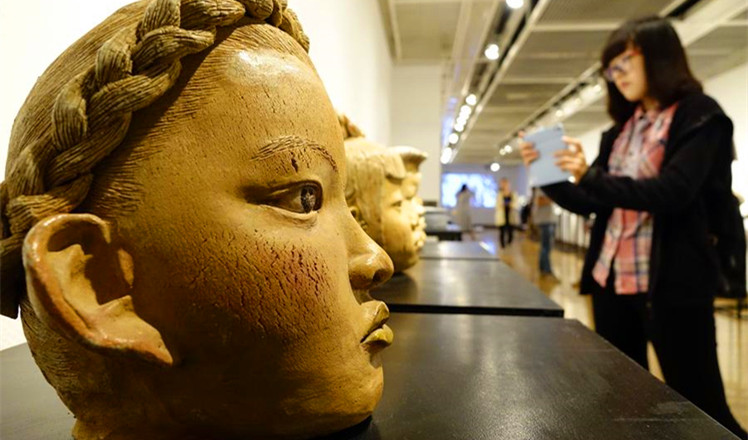
 Contemporary Asian ceramic art shines in Hangzhou
Contemporary Asian ceramic art shines in Hangzhou
 Top 10 most innovative companies in the world
Top 10 most innovative companies in the world
 Spanish-made human tower wows Shanghai audience
Spanish-made human tower wows Shanghai audience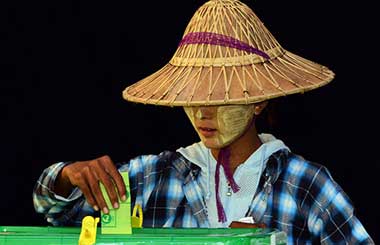
 The world in photos: Nov 2-8
The world in photos: Nov 2-8
 History of Coca-Cola on display in Shanghai
History of Coca-Cola on display in Shanghai
 Beijing embraces first snow of the season
Beijing embraces first snow of the season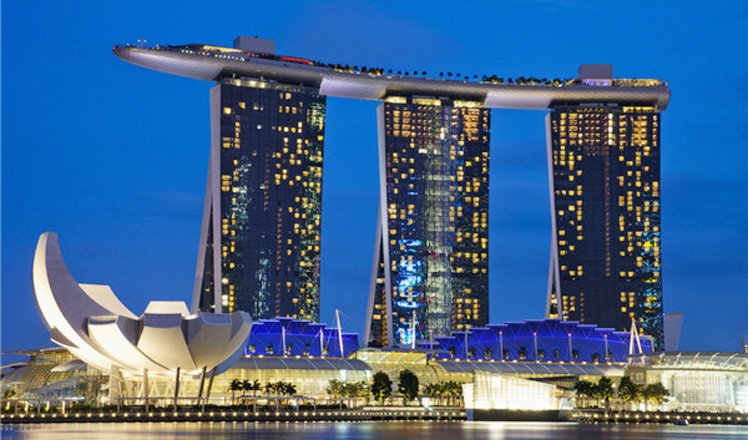
 10 reasons why Chinese tourists like Singapore
10 reasons why Chinese tourists like Singapore
Most Viewed
Editor's Picks

|

|

|

|

|

|
Today's Top News
China, not Canada, is top US trade partner
Tu first Chinese to win Nobel Prize in Medicine
Huntsman says Sino-US relationship needs common goals
Xi pledges $2 billion to help developing countries
Young people from US look forward to Xi's state visit: Survey
US to accept more refugees than planned
Li calls on State-owned firms to tap more global markets
Apple's iOS App Store suffers first major attack
US Weekly

|

|







